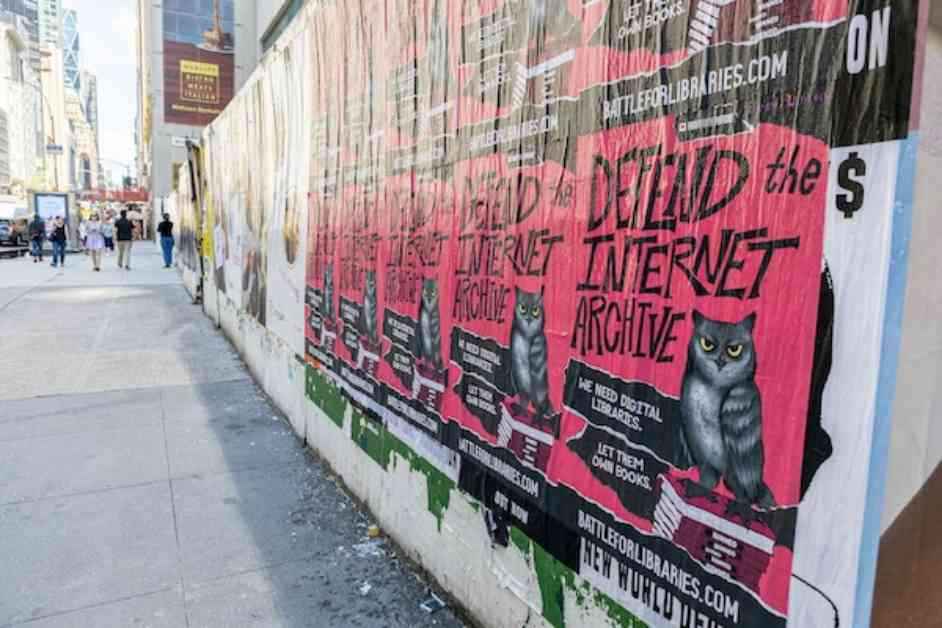Book Publishers Secure Victory in Second Circuit: Internet Archive’s Free Library Ruled Not Fair Use
In a significant legal battle between book publishers and the Internet Archive (IA), the U.S. Court of Appeals for the Second Circuit has upheld a district court ruling that found IA’s “Free Digital Library” to be infringing on the copyright of 127 books. The publishers involved in the case, including Hachette Book Group, Inc; Harper Collins Publishers LLC; John Wiley & Sons, Inc.; and Penguin Random House LLC, argued that IA’s practice of scanning and distributing copyrighted print books without permission was not a fair use under copyright law.
The Second Circuit’s decision is a major setback for IA, which has been at the forefront of efforts to provide universal access to knowledge through its online platform. Despite IA’s mission to work with libraries, museums, universities, and the public to preserve and offer free access to cultural artifacts, the court found that IA’s actions did not qualify as fair use.
IA’s Free Digital Library, launched in 2011, aimed to expand access to digital books by allowing libraries to contribute their noncirculating print books to the platform. This initiative was further expanded in 2018 with the Open Libraries Project, which increased lending capacity while still adhering to Controlled Digital Lending (CDL) practices. However, during the COVID-19 pandemic, IA introduced the National Emergency Library (NEL), which allowed for a much wider distribution of books to users, leading to concerns about copyright infringement.
Despite IA’s arguments that its lending practices were transformative and served a public benefit, the Second Circuit found that IA’s digital books essentially served the same purpose as the original works and did not qualify as fair use. The court also determined that IA’s actions had a negative impact on the potential market for the publishers’ works, further strengthening the publishers’ case.
In response to the ruling, IA stated that it remains committed to defending the rights of libraries to own, lend, and preserve books. However, the court’s decision highlights the ongoing tension between digital access to information and copyright protection in the digital age.
Supporters of IA have voiced concerns about the implications of the ruling, arguing that it could restrict access to digital books and benefit powerful corporations at the expense of readers and libraries. Lia Holland of Fight for the Future, a human rights organization, criticized the court’s decision as a “myopic and dangerous blow” that could have far-reaching consequences for the future of reading and access to knowledge.
Moving forward, the legal battle between book publishers and digital platforms like IA is likely to continue as technology and copyright law evolve. The Second Circuit’s ruling sets a precedent for how courts may interpret fair use in the digital realm and underscores the importance of balancing access to information with copyright protection in the digital age.















